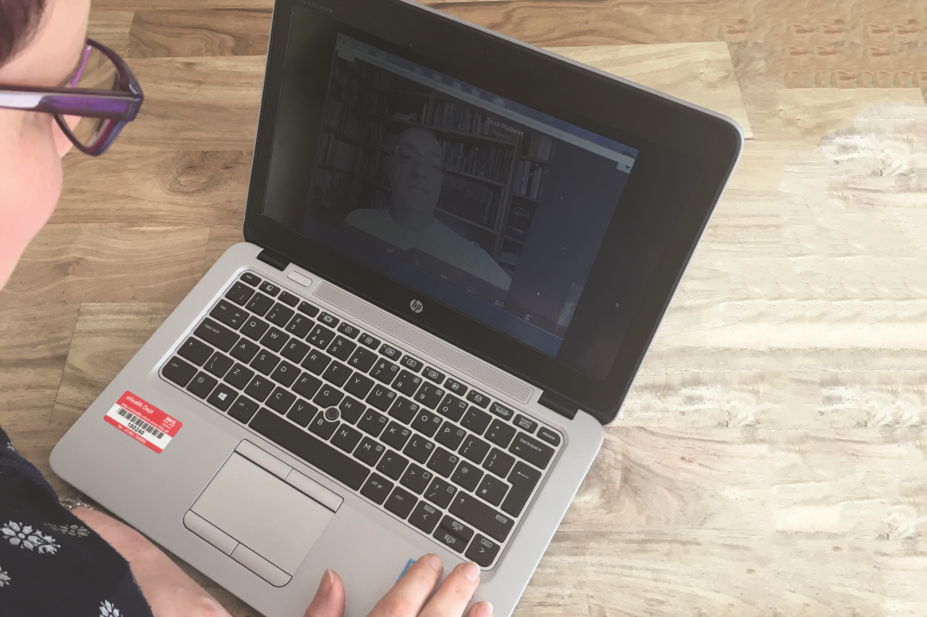
Courtesy of Clare Morrison
Pharmacist independent prescribers (PIPs) working remotely are set to be advised that they must only prescribe when they know the patient’s health and medical history, and are satisfied that the care will meet the patient’s need.
The warning comes in draft guidance, intended to help PIPs understand their obligations as prescribers and the importance of prescribing safely, which is due to be considered at the General Pharmaceutical Council’s (GPhC) meeting on 7 March 2019.
The draft guidance says: “Prescribing medicines remotely, either as part of an online prescribing service or independently on the internet, brings different risks than those when there is a face-to-face consultation. Pharmacist prescribers are accountable for their decisions to prescribe and should only prescribe where they have the relevant knowledge of the person’s health and medical history, and are satisfied that the care meets the needs of the person, including when prescribing remotely.”
The paper states that pharmacist prescribers must take into account the limits of an online or video link consultation. It outlines four categories of medicines that are not suitable to be prescribed remotely without further safeguards being put in place to ensure they are clinically appropriate: antimicrobials; medicines that may be misused such as opiates; medicines that require ongoing monitoring or management, such as sodium valproate; and non-surgical cosmetic medicinal products.
In the draft guidance, the GPhC also said that remote consultations for prescribing nonsurgical cosmetic medicinal products are “not appropriate”.
“We are aware that an increasing number of aesthetic pharmacists are now prescribing nonsurgical cosmetic medicinal products,” it says.
“Pharmacist prescribers who prescribe and administer nonsurgical cosmetic medicinal products must be appropriately trained and only prescribe and administer nonsurgical cosmetic medicinal products in line with good practice guidelines, and only after a physical examination of the person has taken place.”
In council papers for its upcoming meeting on 7 March 2019, the GPhC said that, given the increase in the number of PIPs and other “influencing drivers” such as remote and online prescribing, it felt it was necessary to issue guidance to ensure PIPs meet its standards.
In developing the guidance, the GPhC said it considered recent reports, including the Gosport Panel review, to make sure that common themes, such as listening to patients, speaking up and patient safety, were reflected in the guidance.
It said it would continue to work with other regulatory agencies, including the Medicines and Healthcare products Regulatory Agency, to identify issues that affect patient safety and to make sure that prescribers provide safe and effective care.
The guidance sets out the main areas that PIPs should consider when prescribing, such as keeping up to date and prescribing within their level of competence, prescribing in certain circumstances, including remote prescribing, and raising concerns.
The Council meeting has been asked to approve a 12-week consultation will ask for views on the main areas for safe and effective prescribing; the circumstances to consider when it is appropriate to prescribe safely; safeguards for remote prescribing of certain categories of medicines; and the impact the guidance may have on various stakeholder groups.
If approved, it will run from 26 March 2019 to 18 June 2019.
The GPhC has also developed an evidence framework for the education and training of PIPs, the revised standards for which were published in January 2019.
The framework will support programme providers as they write programmes for the education and training of PIPs; provide guidance on how providers can meet the standards as part of the GPhC’s accreditation process; and provide clarity to PIPs in training and their designated prescribing practitioners around achieving learning outcomes.
The GPhC has welcomed feedback from programme providers and other interested parties on the framework and will be accepting comments until 14 March 2019.


